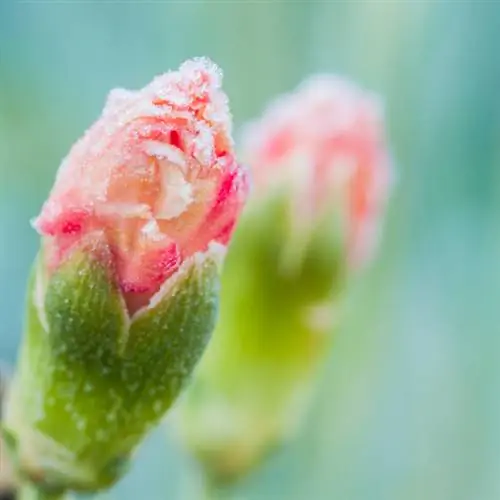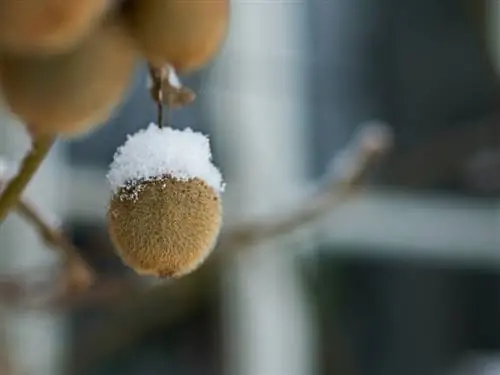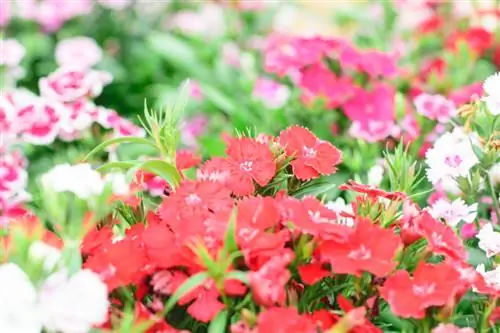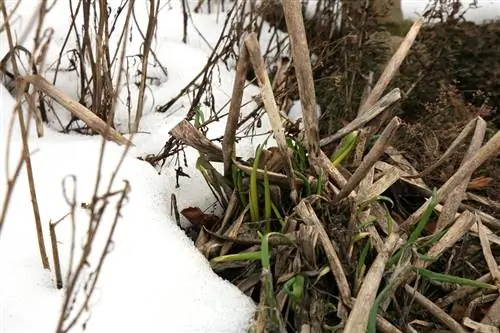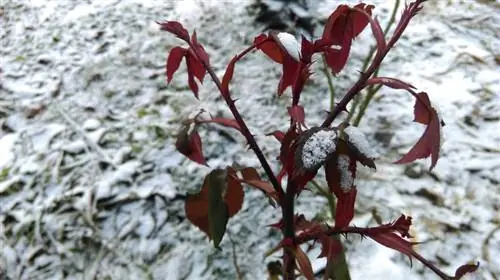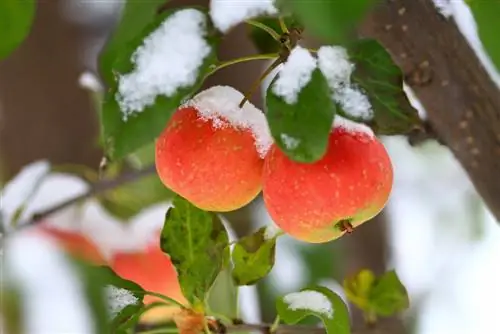- Author admin leonars@hobbygardeners.com.
- Public 2023-12-16 16:46.
- Last modified 2025-01-23 11:20.
Since most carnation species are biennial perennials, they could survive at least one winter, especially since many are considered to be extremely frost-hardy. In practice, however, cloves are often only cultivated as annuals because they die not because of frost but because of moisture.
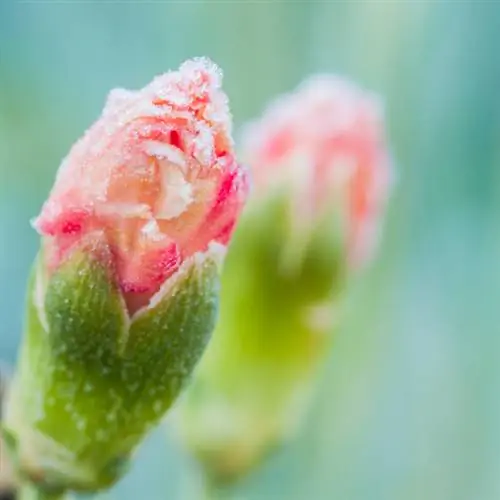
Are carnations hardy and how do you protect them in winter?
Most carnation species are hardy and can survive temperatures down to -25°C. However, problems are more likely to arise from moisture, which causes the plants to rot. Protection with brushwood or spruce branches and avoiding waterlogging can be helpful in winter.
Overwintering carnations properly
Many types of carnations, especially the very robust Carthusian carnation, are considered extremely hardy. These plants prove to be frost-resistant even at temperatures of around -25 °C and are therefore also suitable for very cold winter regions. However, other Dianthus species are more sensitive and therefore require light winter protection. For example, it makes sense to cover it with brushwood (especially spruce branches), as this still provides enough air and light to the plants.
Carnations often die from moisture
However, the biggest problem with carnations is less their sensitivity to frost and more their sensitivity to moisture. Garden or country carnations in particular die in winter not because of the cold, but because they are simply too wet and they rot. After all, these are plants that love drought. If you want to get your carnations successfully over the winter, you should try to avoid excessive moisture as much as possible.
Overwintering carnations in pots
Like their relatives in the garden, carnations in pots are generally hardy and can overwinter outdoors. Since the roots freeze more quickly in narrow pots, the planters should be protected against frost. This is done by placing the bucket on a Styrofoam plate (€56.00 on Amazon) and wrapping it with an insulating material, such as a raffia mat. Furthermore, pot carnations also - or especially - have the problem of moisture: On the one hand, the plants have to be watered on frost-free days in order not to dry out - but on the other hand, moisture also leads to root rot and thus the death of the plant.
Tip
Actually, you don't need to worry about overwintering or not: just leave the last flowers on the plant and finally either collect the ripe seeds (and sow them in spring) or wait for self-sowing. In this regard, cloves are very reliable.

